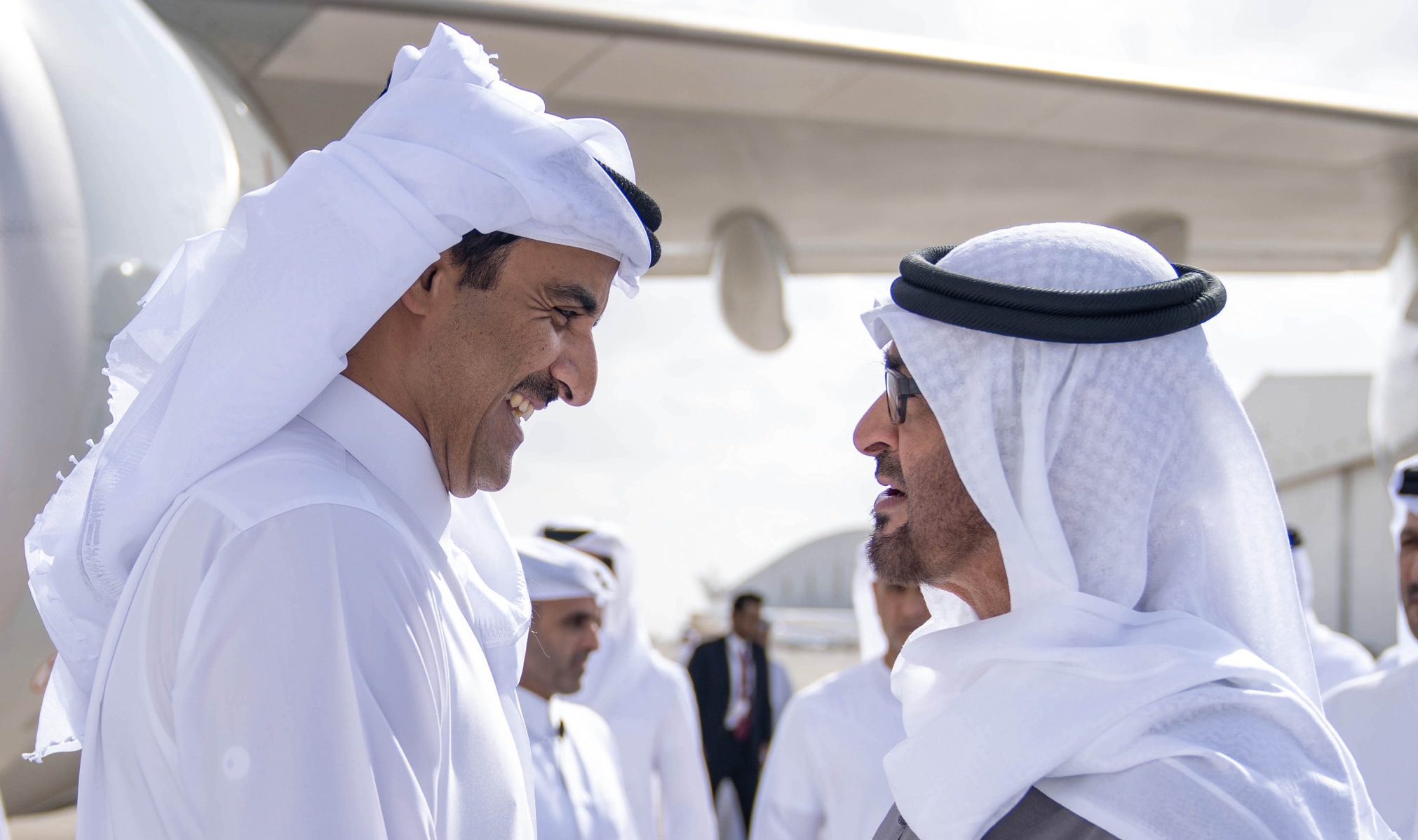The foreign ministers of both countries congratulated one another on the occasion in a phone call.
Qatar and the United Arab Emirates announced the resumption of mutual diplomatic representation in both countries on Monday, marking the final step to rapprochement to end the 2017 Gulf Cooperation Council crisis.
“Qatar and the United Arab Emirates announce the restoration of diplomatic representation between the two countries by resuming the work at the Embassy of the State of Qatar in Abu Dhabi and its consulate in Dubai, and at the embassy of the United Arab Emirates in Doha as of Monday, June 19, 2023,” Doha’s foreign ministry said in a statement.
Qatar’s foreign ministry said the decision was “based on the Al-Ula Agreement, and the keenness of the two countries to strengthen bilateral relations,” referencing the historic 2021 accord that ended the region’s worst rift.
“The two sides affirm that this step comes as an embodiment of the will of the leaderships of the two countries, and in consolidation of the path towards joint Arab action, in a way that achieves the aspirations of the two brotherly peoples,” the statement added.
Qatar’s Prime Minister and Minister of Foreign Affairs Sheikh Mohammed bin Abdulrahman Al-Thani also received a phone call from the UAE’s foreign minister Sheikh Abdullah bin Zayed Al Nahyan.
The Qatari foreign ministry said the officials congratulated one another on the resumption of embassies in both countries.
“The Prime Minister and Minister of Foreign Affairs welcomed the resumption of diplomatic relations between the two countries, expressing Qatar’s aspiration to strengthen partnership with the UAE, which reflects the depth of brotherly relations between the two brotherly peoples,” the statement added.
In 2017, the UAE joined Saudi Arabia, Bahrain, and Egypt in imposing an illegal air, land and sea blockade on Qatar while severing ties with the country.
At the time, the quartet accused Qatar of supporting terrorism, though Doha has consistently and vehemently denied those “baseless” allegations.
While the crisis effectively came to an end in 2021 with the signing of the Al-Ula Declaration in Saudi Arabia, ties between Qatar and the UAE have taken time to pick up pace.
However, notable progress was seen late last year with a surprise visit by UAE ruler Sheikh Mohamed bin Zayed Al Nahyan, also known as MbZ, to Qatar during the 2022 FIFA World Cup. This marked his first to the Gulf state since becoming president.
In May last year, Qatar’s Amir Sheikh Tamim bin Hamad Al Thani visited the UAE for the first time since the crisis was resolved to offer his condolences following the death of former ruler Sheikh Khalifa bin Zayed Al-Nahyan.
In January, Sheikh Tamim paid another visit to the UAE for a meeting between leaders from the GCC, Jordan and Egypt.
In yet another major development in March, the UAE decided to withdraw its bid to host the 2026 World Bank International Monetary Fund and World Bank meetings in favour of Qatar.
The announcement was made in a phone call between Sheikh Tamim and MbZ, with the latter expressing his country’s support for Qatar’s candidacy file to host the IMF and World Bank meetings.







